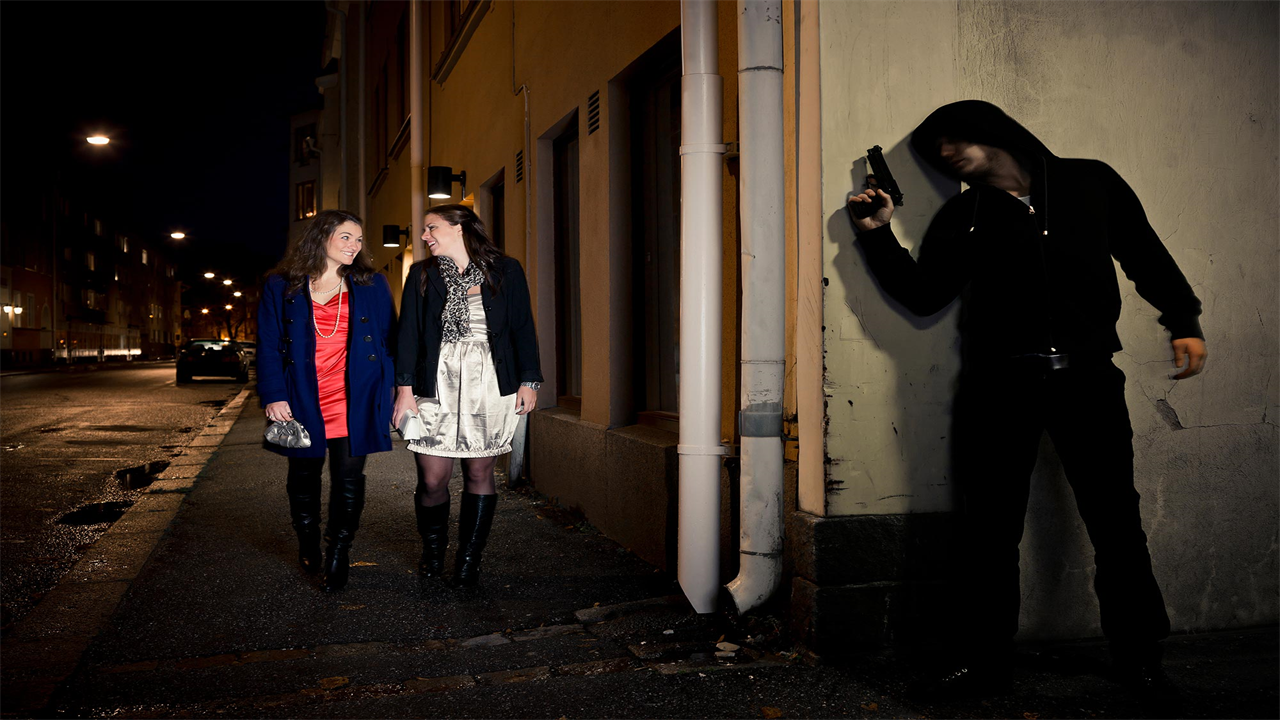Urban Crime Fell Significantly Around the World During COVID-19 Shutdowns – With One Key Exception
0 View
Share this Video
- Publish Date:
- 2 June, 2021
- Category:
- Covid
- Video License
- Standard License
- Imported From:
- Youtube
Tags

A team of researchers led by the University of Cambridge and the University of Utrecht examined trends in daily crime rates before and after COVID-19 restrictions were introduced in major metropolitan areas such as Barcelona, Chicago, Sao Paulo, Tel Aviv, Brisbane and London.
While both the rigor of the lockdowns and the resulting crime reductions varied significantly from city to city, the researchers found that most crimes – with the main exception of murder – dropped significantly at the study sites.
In all 27 cities, daily attacks fell by an average of 35% and the number of robberies (violent theft or intimidation, such as mugging) almost halved: on average 46%. Other forms of theft, from pickpocketing to shoplifting, fell by an average of 47%.
“City life has been drastically curtailed by COVID-19 and crime is a big part of city life,” said Prof. Manuel Eisner, director of the Violence Research Center at the University of Cambridge and senior author of the study published in the journal Nature Human Behavior.
“No drinkers taking to the streets after a night out in bars and pubs. No days spent in shops and cafes or at the racetrack or football game. Some cities even introduced curfews. It stifled the opportunism that fuels so much urban crime.”
“We found the greatest decrease in crimes where motivated offenders and suitable victims congregate in a public space. There would be far fewer potential targets in the usual crime hotspots, such as nightclub-packed streets,” Eisner said.
Crime declines from home ordering from COVID-19 have been mostly sharp but short-lived, peaking about two to five weeks after implementation, followed by a gradual return to previous levels.
Overall, the team found that tighter lockdowns led to a greater fall in crime — although even cities with voluntary “recommendations” rather than restrictions, such as Sweden’s Malmö and Stockholm, dropped the daily rate for theft.
Vehicle theft decreased by an average of 39% across the study sites. Researchers found that stricter restrictions on bus and train use during lockdowns were linked to greater declines in vehicle theft – suggesting that negotiating cities via public transport is often a prerequisite for stealing a set of wheels.
The number of burglaries also decreased by an average of 28% in all cities. However, the lockdowns impacted the number of burglaries from city to city in markedly different ways. While Lima in Peru saw rates fall by 84%, San Francisco saw the number of burglaries due to COVID restrictions increase by 38%.
Data from many cities did not distinguish between commercial and residential. Where it did, break-ins into private properties — rather than shops or warehouses — were more likely to decrease, with more people inside around the clock.
The drop was lowest for homicide cases: on average just 14% lower in all cities in the study. dr. Amy Nivette from Utrecht University, the study’s lead author, said: “In many societies, a significant proportion of murders are committed at home. The restrictions on urban mobility may have little effect on domestic homicides.
“In addition, organized crime – such as drug trafficking gangs – is responsible for a varying percentage of homicides. The behavior of these gangs is likely to be less sensitive to the changes enforced by a lockdown,” Nivette said.
However, three cities where gang crime leads to violence, all in South America, saw a large drop in daily homicide rates due to COVID-19 policies. In Brazil’s Rio de Janeiro, the homicide rate fell by 24%. In Cali, Columbia, the decline was 29% and in Lima, Peru, it was down 76%.
Rates of reported attacks also saw notable declines in Rio de Janeiro (56% decline) and Lima (75% decline). “Perhaps criminal groups have used the crisis to bolster their power by imposing a curfew and restricting movement in the areas they control, resulting in an interruption of the violence plaguing these cities,” Eisner said.
Researchers found that Barcelona was something of an “outlier”, with massive falls in assault (84% drop) and robbery (80% drop). Police-recorded thefts in the Spanish city fell from an average of 385 per day to just 38 per day in lockdown.
London saw less pronounced but still significant reductions in some crime, with daily robberies at 60%, theft at 44% and burglaries at 29%. The two US cities in the study, Chicago and San Francisco, had their best results in the assault category, dropping 34% and 36%, respectively.
The research team found no overall relationship between measures such as school closures or economic support and crime rates during lockdowns.
Eisner added: “The measures taken by governments around the world to contain COVID-19 have allowed for a series of natural experiments, with major changes in routines, daily encounters and use of public space for entire populations.
“The pandemic is devastating, but there are also opportunities to better understand social processes, including those involved in driving citywide crime levels.”
Reference: “A Global Analysis of the Impact of COVID-19 Stay-at-Home Restrictions on Crime” by Amy E. Nivette, Renee Zahnow, Raul Aguilar, Andri Ahven, Shai Amram, Barak Ariel, María José Arosemena Burbano, Roberta Astolfi, Dirk Baier, Hyung-Min Bark, Joris EH Beijers, Marcelo Bergman, Gregory Breetzke, I. Alberto Concha-Eastman, Sophie Curtis-Ham, Ryan Davenport, Carlos Díaz, Diego Fleitas, Manne Gerell, Kwang-Ho Jang, Juha Kääriäinen , Tapio Lappi-Seppälä, Woon-Sik Lim, Rosa Loureiro Revilla, Lorraine Mazerolle, Gorazd Meško, Noemí Pereda, Maria FT Peres, Rubén Poblete-Cazenave, Simon Rose, Robert Svensson, Nico Trajtenberg, Tanja van der Lippe, Joran Veldkamp, Carlos J Vilalta Perdomo and Manuel P. Eisner, June 2, 2021, Nature Human Behavior.
DOI: 10.1038/s41562-021-01139-z










